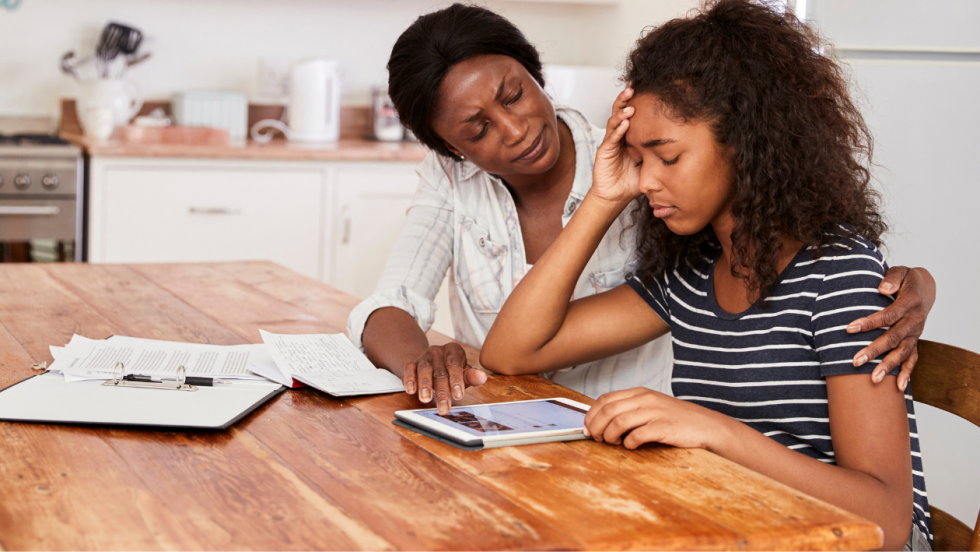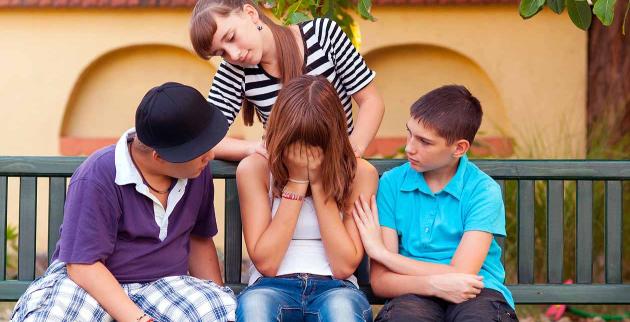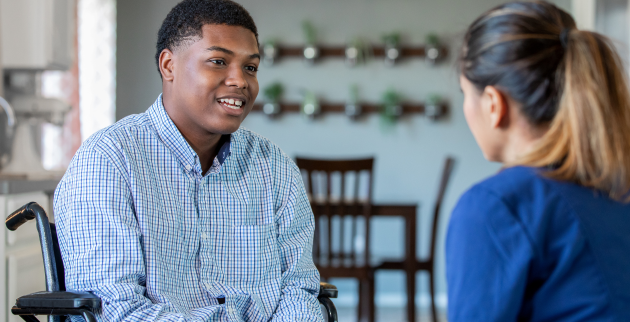Stress and anxiety

Stress about exams, school, work or finding a job is natural. These are important things which will have a big effect on your future.
Stress can be helpful, for example motivating you to study or try your best.
If stress is causing you concern, there are things that can help:
- Talking to friends and family
- Taking time to relax
- Getting enough sleep
If you are getting too stressed, it can be helpful to get support. Talking to your School Health Nurse can be a good place to start.
Crucial: Download the Mindshift App for inspiration, practical strategies, quick meditations, and more to help reduce stress.
Anxiety
Anxiety can be a warning that there is something in your life you need to change. This could be how you look after your feelings, or it could be a problem in your life.
Sometimes simple actions can help:
- Talk back to yourself in a positive way
- Answer negative thoughts with a positive thoughts
- Soothe yourself with calm thoughts or make plans to do something fun or positive
Take action: The Clear Fear app is an app which is designed to help you manage your anxiety through a range of activities and exercises.
Learning how to change your response to stresses can be difficult and take time, but it is worth it. The skills you learn to manage anxiety will help you with everything in your life, from focusing on study to succeeding in a job interview.
Panic Attacks
Very intense periods of anxiety are sometimes called panic attacks.
If you feel anxiety starting to peak:
- Close your eyes and focus only on your breathing.
- Breathe in as slowly, deeply and gently as you can, through your nose (count to five, if you can).
- Breathe out slowly, deeply and gently through your mouth (count to five if you can).
- Repeat as needed (a few breaths to twenty minutes).
Panic attacks can be very frightening but learning to manage one is your first step to solving them all.
Crucial: If you need it, there is support available to help you. Start by talking to your School health nurse or your GP, or visit the Oxfordshire CAMHS website to find local support.
Everyone is different, so for different people, different things will work. But here are some things that are proven to help most people.
Sleep problems
Teenagers need more sleep than adults. This is because the teenage brain is growing and changing.
These things can help:
- Set a regular bed-time
- Wind down before bed (no screen time)
- Drift off to sleep (quiet, dark, uninterrupted)
Finding out what works for you is the key with getting better sleep.
Staying busy
Most people find it helpful to keep active and busy, for example by:
- Doing activities or clubs
- Going to school, college, work or work experience
- Exercising and staying active
When people stop doing things they can find difficult feelings get worse.
Crucial: Overstretching yourself can also be a problem. The aim is balance. There is more help to cope with stress from the Mix. .
Regular Physical Activity
Masses of evidence links physical activity with better wellbeing.
Getting active:
- Improves your mood and reduces stress
- Boosts self esteem as you learn new skills and get fitter
- Gets you out and about and helps you meet people
Exercise does not have to be sport, it can be things like walking, cycling, and swimming.
Take action: Active Body, Healthy Mind can get you involved with sport and physical activity, and you can find lots of other opportunities, including volunteering on this website
Support from Tellmi
Tellmi is a free mental wellbeing support app for children and young people in Oxfordshire.
It is a safe, anonymous app where you can talk about anything.
Moderators check everything to keep you safe and their in-house counsellors are always on hand if you need extra support.
Take Action: You can sign up for anxiety-easing emails from Every Mind Matters to get expert advice and practical tips to help you deal with anxiety.


